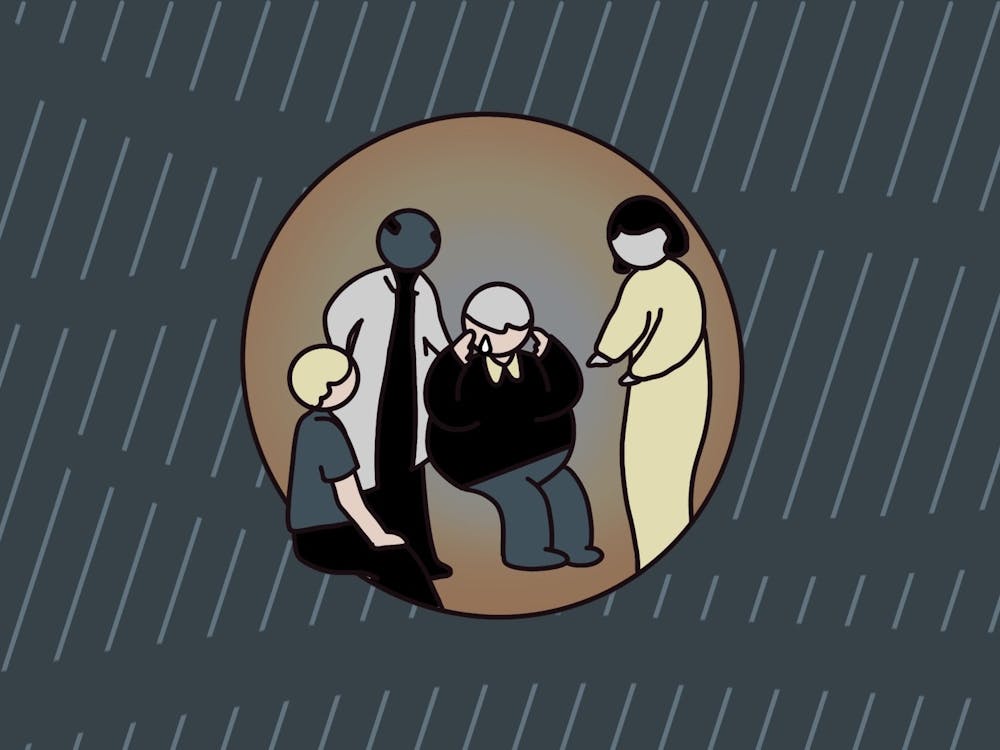The University has held three pilot sessions of a new grief group for faculty and staff, meant to help the members process their grief after losing a loved one, this month. Chaplain of the University Janet Cooper Nelson and Mika MacInnis ’02, a psychologist, led the group together.
The group met once a week during a time disclosed only to attendees. The initial three pilot sessions were attended by seven members, and the facilitators intend on keeping the groups under 10 people, according to Nelson.
Nelson and MacInnis said the group plans to meet regularly in the future.
The pilot sessions were neither clinical nor religious in nature, according to MacInnis. Instead, during the sessions, MacInnis and Nelson functioned as a sounding board who “at the same time can maybe organize material as it comes in,” she added. MacInnis said she hopes that these sessions provided a sense of community for participants.
The University currently runs a grief group for students, but Nelson envisions a different approach to sessions for faculty and staff. While anyone is welcome to attend the student grief group for any number of sessions, Nelson thinks that staff and faculty members should be registered and come to three to four sessions in a row to create a sense of belonging.
“Students have other ways to know each other,” Nelson said. For “staff and faculty, it's a little harder to do that.” Nelson plans to continue this multi-session format as the faculty group reorganizes and expands after its initial pilot sessions.
A faculty and staff grief group has not previously existed on campus, Nelson said, but after numerous employees reached out to her inquiring about access to grief support on campus, she decided to fill the gap.
“Grief work is best done in a group, and it's because the group can help both show regard for the person who's doing the work, but also (provide a) model” for those just starting out, Nelson said. “If I come to the group, and you're six months ahead of me with a loss that's quite similar to mine and I see that you're actually able to get dressed in the morning, get a shower and function a little bit,” that provides inspiration to new members.
The group is meant to relieve participants of the pressure of societal norms regarding grief, according to MacInnis. “You can basically clear a room by bringing up the death of somebody close to you,” she said. “In a bereavement group, … you're not going to scare people off by talking about something that traditionally” is not talked about.
Nelson said that society often expects people to continue living their lives after experiencing grief without providing necessary support. She said she hopes the staff and faculty group can ease this expectation and offer important resources.
“We're not a very realistic world in terms of what accommodations we're ready to make when someone's grieving. And I think the staff faculty group is in some very, very small way an effort on my part to say we need to (do) more,” she said. “I hope by putting some resources in place, … we will come up with some more durable, regular ways to offer this support.”
The group is particularly necessary in the context of the COVID-19 pandemic, Nelson added.
MacInnis said the group’s sessions were framed around “big losses and little losses.” Big losses refer to something such as the death of a parent, spouse or child — which many people have experienced as a result of COVID-19, MacInnis said.
But little losses have similarly proliferated during the pandemic, according to MacInnis. “You weren't seeing the people that you normally saw (or participating in) daily or weekly activities that outlined our weekly schedule or routine,” she said.
Both Nelson and MacInnis hope that staff and faculty will find a sense of connection and community through the group.
“I think in a group of a few people, (connection is) very likely … if you start talking about something you're struggling with,” Nelson said. “Even if the grief of the other person is quite different, they will recognize some of those difficulties as somewhat similar to their own.”
“We all experience loss,” MacInnis said.





